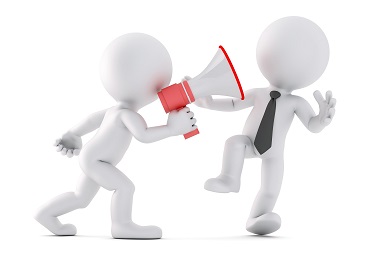Dealing With Difficult People

There is some wisdom in the old saying "You can choose your friends, but you can't choose your relatives." The reality is that the people who cause us the most discomfort in life are often related to us. Friendships can be let go and new friends found, but we can't do that with family, as much as we may want to at times. There is an instinct within each of us which keeps on believing that we can make things right with family and have happy relationships again. Sadly this is not always true, because any successful relationship needs two parties who are both invested in building a fulfilling connection. If this goodwill is only one-sided, then you don't have a relationship. You may have a giver/taker or a winner/loser dynamic happening, but it is not a relationship.
How Do I Tell If It's A Toxic Relationship?
- It will be one sided. One person will be putting in all the effort, doing all the chasing, giving, or caring, while the other is happy to stay on the receiving end.
- It will drain you rather than refresh you. This may be mentally or emotionally as well as physically. Even when you are not actually with the other person you may find yourself getting tense or anxious about your next encounter with them.
- You will find yourself driven to maintain the connection due to fear, guilt or a sense of duty, rather than from free choice.
- You will find it difficult to hold on to your sense of individual identity when dealing with this person. This may mean that you give up things that you want to do in order to accommodate their needs, or you find yourself regularly saying "yes" when you really want to say "no".
- You will get mad with yourself regularly for not standing up for yourself, but next time you will fall in the same old pattern again. Some people describe this as feeling as though they have temporarily lost their own will.
What Makes People Toxic?
There are as many answers to this as there are people. Just remember that someone you may find difficult to handle may enjoy perfectly healthy and meaningful relationships with other people. This can be hard to accept, because we would all like to think that we are not the problem, but they are. The fact is that certain people combinations will always produce conflict.
- Personality
- Personal history. We all have our buttons which, if pushed, will guarantee a negative response. As long as we don't take personal responsibility for this, we will potentially always be capable of being toxic to someone.
- Addictions.
- Personality disorders.
- Learned unhealthy behaviours. If someone has found that the only way they can feel noticed is to constantly seek attention, then they may upstage others constantly, with no regard for others' wants or needs. The result is offence and conflict.
- Unpredictability. Sometimes we just have no idea what to expect from particular people. Their responses change regularly so that we can never be prepared. This is exhausting and can cause us to feel anxious.
How Can I Handle Difficult People?
The good news is that even though they may never choose to change, you have lots of options open to you.
- Choose to forgive. No they may not deserve it in your opinion, but hanging on to bitterness and resentment will only destroy you in the long run.
- Be patient. Sometimes if we can simply wait and do nothing in response, the other person feels it's not worth the effort and will give up.
- Let go of "the right to be right". In the big picture of life, is the effort you are pouring into making someone else see things your way, actually worth it?
- Stop taking the bait. The toxic people in your life probably know very well how to get you to react in certain ways. Don't give them the satisfaction.
- Stop rehearsing your grievance. Be honest with yourself. Every time you get used/hurt/offended, do you go and put it on Twitter or Facebook, text all your friends, and talk to everyone you meet about it? You are trying to gather support so you can be seen as "right", but in the process you are giving the problem strength and the difficult person greater power over you and your emotions. Is that really what you want?
- Listen to your head as well as your heart.
- Look for the gift in the current challenge. There is usually one, even if it's well hidden. Are you being given an opportunity to grow, to be more generous, to choose healthier priorities or to accept personal responsibility?
- Try to see the world through their eyes. What things are they dealing with, outside of their relationship with you, which may be having an influence?
- Step away. Sometimes we have to accept that it is simply time to let someone go.
How Can Counselling Help?
A trained counsellor can help you to work on all the points above. They can also support you to explore the ways in which you may be toxic to others and to choose options that will work better for you. At Point of Change Counselling, we have worked for over three decades, helping people improve the quality and satisfaction of all kinds of relationships.
If you need help in dealing with difficult people, contact Alli at Point Of Change Counselling and make an appointment.
